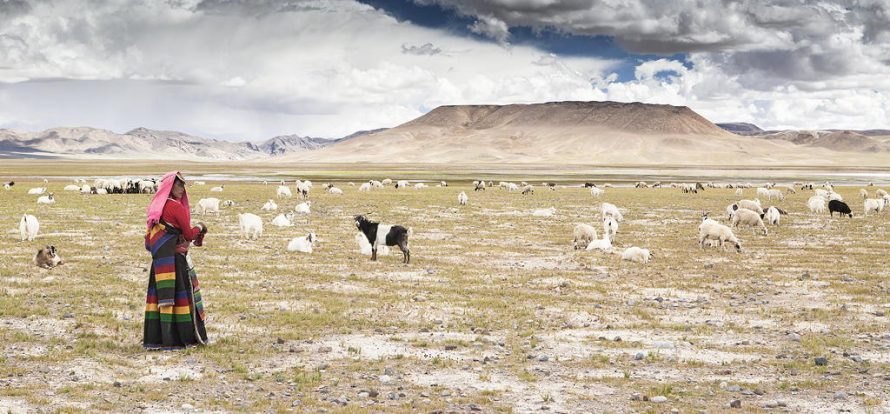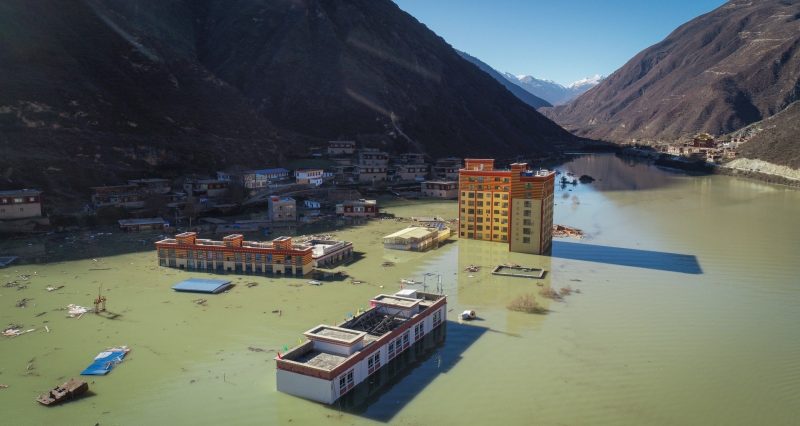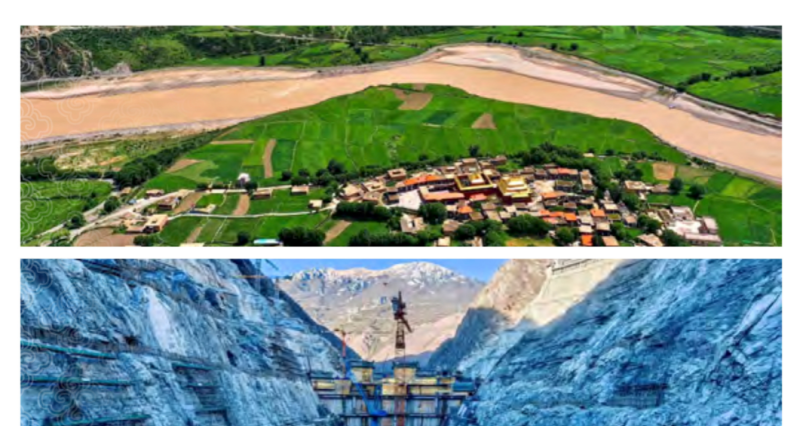Surrounded by high mountains and with an average elevation of 4,500 meters above sea level, the Tibetan Plateau is one of the most environmentally strategic and sensitive regions in the world.
Known as the “Third Pole” because of its importance as the largest repository of fresh water outside the North and South Poles, it is also home to a rich and unique flora and fauna, including endangered species such as the Tibetan antelope and the snow leopard. However, in recent years, China’s policies of fast-track development based on an urban industrial model in Tibet have been damaging this fragile high-altitude ecosystem. Intensive infrastructure construction and large-scale mining are causing the desertification of the grassland and the pollution of the rivers, with devastating implications for Tibet, but also for the two billion people in Asia who are dependent on its rivers, as well as for the global climate.

In fact, the issue of environment in Tibet is intimately linked to human rights. For Tibetans, who have lived in harmony with nature for centuries based on the principles of interdependence enshrined in their religious beliefs and customs, the degradation of the environment is a deep source of concern, and several environmental protests have taken place in various regions of Tibet in recent years. But the Chinese police, in contravention of international human rights, has been heavy-handed in its response, with arrests and an excessive use of force. Moreover, under the pretext of development and ecological preservation, the Chinese government has accelerated programs of resettlement, land confiscation, and fencing of pastoral areas inhabited primarily by Tibetans nomads, dramatically curtailing their livelihood. Thousands of Tibetan herders have been forced to slaughter their livestock, move into newly-built housing colonies in or near towns, and abandon their traditional way of life – all this despite a scientific consensus that indigenous stewardship and herd mobility is essential to the health of the rangelands and helps mitigate climate change. These policies are generally implemented without the consultation or consent of the people affected, who have had no chance to challenge them.
Related news and resources

ICT briefs French Senators about the importance of Tibet for Asia’s water supply
Two ICT representatives were able to take part in a colloquium in the French Senate in Paris on 3 December focusing on the issue of water management in the Himalayas and in particular in Tibet.

China’s intensive hydropower dams threaten millions in Tibet and Asia
A new International Campaign for Tibet report finds China’s rapid hydropower dam scheme is causing irreparable damage to the Tibetan civilization, the environment, downstream nations, and the climate. Its agenda disregards the human impact, the science, and worsening climate change hydropower brings.

Chinese hydropower Damming Tibet’s culture, community and environment
The People’s Republic of China’s hydropower and dam projects are increasingly leading to massive human rights violations and environmental damage in Tibet. Since Asia’s largest rivers originate in the Tibetan plateau, the construction of hydroelectric dams in Tibet also threaten the water supply, livelihoods and health of up to 1.8 billion people across China, South and Southeast Asia.